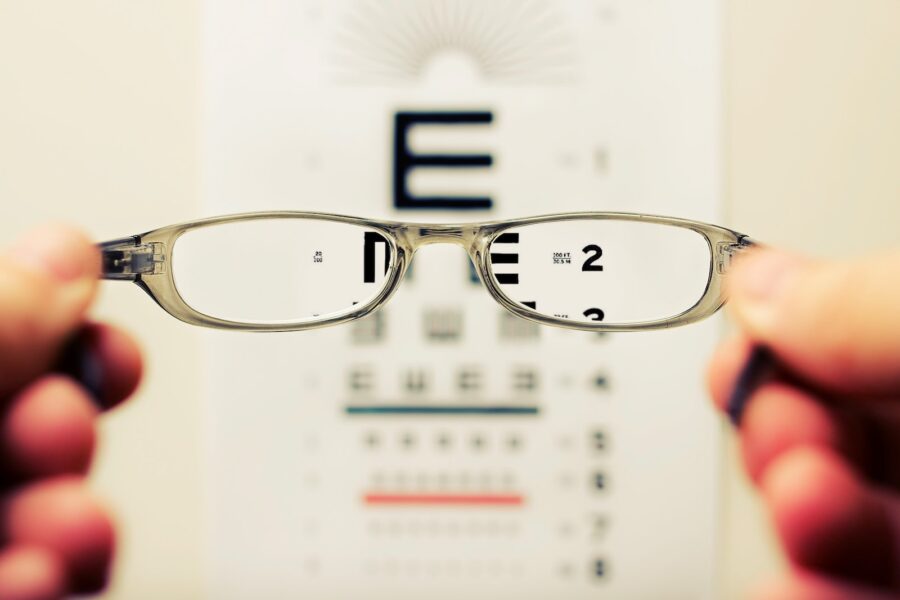Business leaders are responsible for safeguarding the well-being and productivity of their workforce. This includes awareness of the risks of unhealthy work practices and ensuring a balanced work environment.
A well-considered employee wellness strategy should consider its employees’ physical, mental and financial well-being. If executed correctly, strategies can promote prevention over cure by tackling risk factors in the work – and work-from-home – environment before they materialise as an issue.
Employers are becoming increasingly attuned to staff wellbeing, particularly in the wake of the pandemic, which should be celebrated. However, they tend to promote physical wellness by offering free healthy snacks, encouraging walking meetings, providing discounted gym memberships or holding group challenges or classes. All hugely positive initiatives, but many overlook fundamental health needs, such as clear vision – and there’s a tangible benefit in getting back to basics.
Those companies that do offer eyecare-related benefits tend to be larger organisations. Yet, it could be argued that SMEs with smaller teams pay a larger price for health-related absences or a drop in productivity. And, when you consider that SMEs employ 16.4 million people in the UK – 61% of the total number of people employed by private-sector companies – and collectively turn over an estimated £2.1 trillion (51%) – the impetus to look after employees becomes clear.
The Unseen Struggles
In a world defined by digital immersion, most, if not all, urban workplaces have transformed into arrays of desks, machines and display equipment. The prevalence of screens and display devices has enhanced connectivity and continuity like never before, but not without its challenges.
Prolonged hours in front of screens have become the norm in contemporary office culture, saturating our professional lives like never before. In addition to this, the pressure to exceed expectations has stigmatised taking short breaks.
While tech advancements mean we can be more productive and efficient, there is also added pressure on employees for the same reasons. New gadgets have empowered us, but they have also brought attention to the value of self-care.
Office designs have improved over the years to be more ergonomic – chairs with lumbar support, standing desks and break-out areas with bean bags. But it is not just about the physical strains like aches and stiffness that accompany prolonged screen usage; there are also subtle yet impactful consequences on our mental health and eyesight.
Recent findings from a survey of office workers conducted by Specsavers provide valuable insights into the relationship between screen time, fatigue, unproductivity, and the often-overlooked importance of regular eyecare. The survey’s revelations highlight the need to address these issues.
Poor Vision = Poor Performance
In a bid to enhance their productivity, employees sit at their desks for longer and work harder with the aim of getting more and more work done in less time. Over time, this becomes counterproductive – output is drained, and hours are wasted.
When your vision is blurred, it can be impossible to get work done. In fact, according to our recent survey, eyestrain is the top reason for unproductivity caused by physical discomfort, with almost a quarter (22%) of respondents saying it affects their focus.
It might be that an employee’s lens prescription has changed without them noticing, or they’re suffering from fatigue. Whatever the cause, straining of the eyes can lead to other symptoms such as headaches, double vision, sore neck and shoulders and increased sensitivity to light, known as photophobia.
Easy Relief
Enter the 20-20-20 rule: a simple hack to digital exposure that can transform how we interact with work and prevent eyes from getting overwhelmed. Scientifically proven, it advises taking a 20-second break to look at something at least 20 feet away every 20 minutes working with a screen.
Over 46% of UK office employees surveyed acknowledged the benefits of these micro-breaks, reinforcing the idea that a slight pause can significantly impact productivity and well-being. It is an easy yet very effective practice that businesses should actively champion.
Breaks – Not at Leisure, But a Necessity
Despite this understanding, the survey brings to light an alarming statistic: 84% of UK employees take breaks much less often than 20 minutes and 40% subject themselves to uninterrupted screen exposure for over two hours. This extends beyond the threshold of reasonable functioning – leading to exhaustion, diminished cognitive functioning and unproductivity.
The power of breaks should not be underestimated. They enable our minds and bodies to recharge, regain focus and make way for creativity. Business leaders can spearhead this shift by fostering a culture that values and encourages regular breaks.
A Clearer Vision for a Better Future
Simply put, our eyes are silent victims of the screen age, and regular eye tests are the best way to keep things in check. The problem is that over 50% of employees perceive eye tests as expensive, struggle with time constraints, or don’t prioritise them.
Employers are duty-bound to provide eyecare benefits to employees, but many fail to connect eyesight and productivity and don’t prioritise eye health.
Nurturing a Holistic Work Environment
Business leaders are responsible for steering the workplace culture towards one of balance and vibrance. By acknowledging the hazards of extended screen time and actively advocating for regular breaks, you can ensure that well-being and productivity coexist in your offices. The pivotal connection between screen time, exhaustion, productivity, and the need for regular eye care cannot be ignored. Employers must seize this moment to initiate best practices that champion the importance of eye care within their ecosystem.
Practising the 20-20-20 rule, taking regular breaks, stretching or going for a short walk can help regain lost focus and beat fatigue. Promoting these methods in the office and offering employee welfare programmes is a holistic and almost admin-free way to safeguard your most precious asset – your employees’ vision.

Giles Edmunds
Giles Edmonds is Specsavers’ Clinical Services Director. A qualified optometrist with an MBA, Giles is also a partner in two Specsavers stores in the West Midlands.


